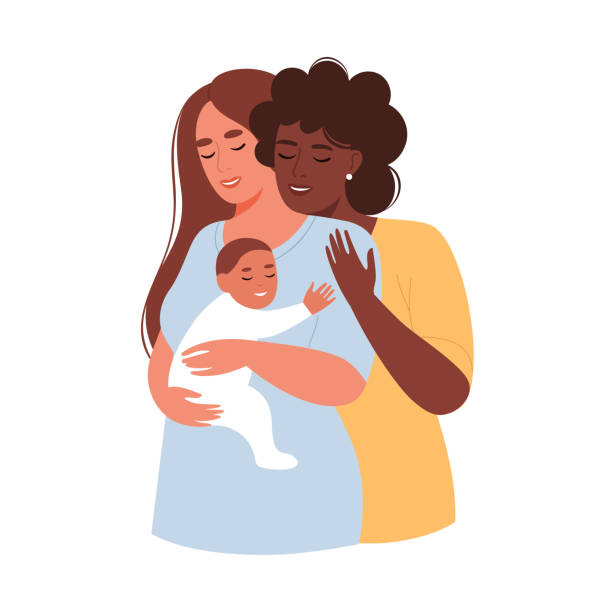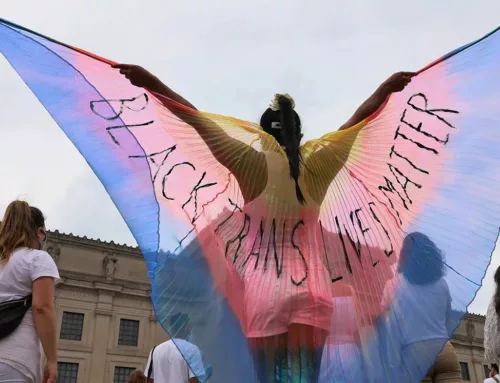
LGBTQ+ Parents and Sexuality
Drs Sofia Jawed-Wessel and Christine Leistner have published a new study documenting how LGBTQ+ parents’ sexual identities and experiences are represented in existing scientific literature. The review included 7 total studies, which used both qualitative and quantitative methods. Samples were largely white, highly educated, varied considerably in gender and sexual orientation make-up, and were recruited from the United States, Canada, and Italy.
Five sexuality-related themes were identified from studies included in this review:
1) Sexual Function
Sexual functioning differed between women in same-sex relationships versus men in same-sex relationships with men reporting lower levels of sexual functioning (Fioravanti et al., 2021). Sexual problems often decreased for women after moving from a mixed-sex to same-sex relationship whereas this remained unchanged for men apart from low sexual desire (Fioravanti et al., 2021). Sexual desire and satisfaction were also impacted during the transition to parenthood or in and out of caregiving roles (Farr et al., 2010; Paine et al., 2019).
2) Sexual Frequency
Sexual frequency differs between gay, lesbian, and heterosexual adoptive families with gay male adoptive parents reporting highest sexual frequency and lesbian adoptive families reporting the lowest (Farr et al., 2010). For gay male, lesbian, and heterosexual couples, all reported decreases in sexual frequency throughout transition to parenthood and discussed childcare as a reason for decrease (Huebner et al., 2012; Paine et al., 2019).
3) Sexual Well-Being
Participants reported more sexual problems occurred in their mixed-sex couples versus their current same-sex relationship (Fioravanti et al., 2021). Parenthood was reported as a reason for decrease in importance of sexuality among plurisexual women and among gay men transitioning to parenthood, with gay men placing more emphasis on nonsexual intimacy in relationships (Goldberg et al., 2019; Huebner et al., 2012). In terms of sexual respect, bisexual parents reported experiencing homophobia from current or past romantic partners and bisexual mothers reported pressures of conforming to heteronormative expectations of parenthood (Bowling et al., 2018; Goldberg at al., 2019).
4) Sexual Relationship Maintenance
Sexual relationship maintenance was supported in bisexual parents through open communication, negotiation of responsibilities, acceptance of sexual identity, and therapy (Bowling et al., 2018). In gay men transitioning to parenthood, acceptance and focusing on quality of sexual activity improved relationship maintenance (Huebner et al., 2012).
5) Consensual Non-Monogamy
Consensual non-monogamy was reported as a connection to sexual identity (Goldberg et al., 2019; Bowling et al., 2018; Manley et al., 2018). Boundaries and committing to sexual agreements among parents engaging in CNM were highlighted as essential for safety and relationship satisfaction (Bowling et al., 2018; Huebner et al., 2012).
While many studies focus on LGBTQ+ parenting, they often ignore how these parents experience and express their sexuality beyond their caregiving roles. The study emphasizes that LGBTQ+ parents, like all parents, continue to have sexual identities that shape their lives, yet these aspects are frequently overlooked or misunderstood in both research and society.
The study highlights the unique challenges LGBTQ+ parents face, including harmful stereotypes that portray them as either hypersexual or entirely desexualized. They also discuss how societal norms and policies sometimes pressure LGBTQ+ parents to downplay or hide their sexual identities in order to be perceived as “good” parents. This erasure not only affects their personal well-being but also limits the understanding of LGBTQ+ family dynamics in academic research.
Drs Jawed-Wessel and Leistner advocate for a more inclusive and holistic approach to research on LGBTQ+ parents—one that acknowledges how their sexuality, relationships, and identities remain important beyond their roles as caregivers. Future studies should recognize LGBTQ+ parents as whole individuals, ensuring that their experiences are fully represented in conversations about family, identity, and social policy.




